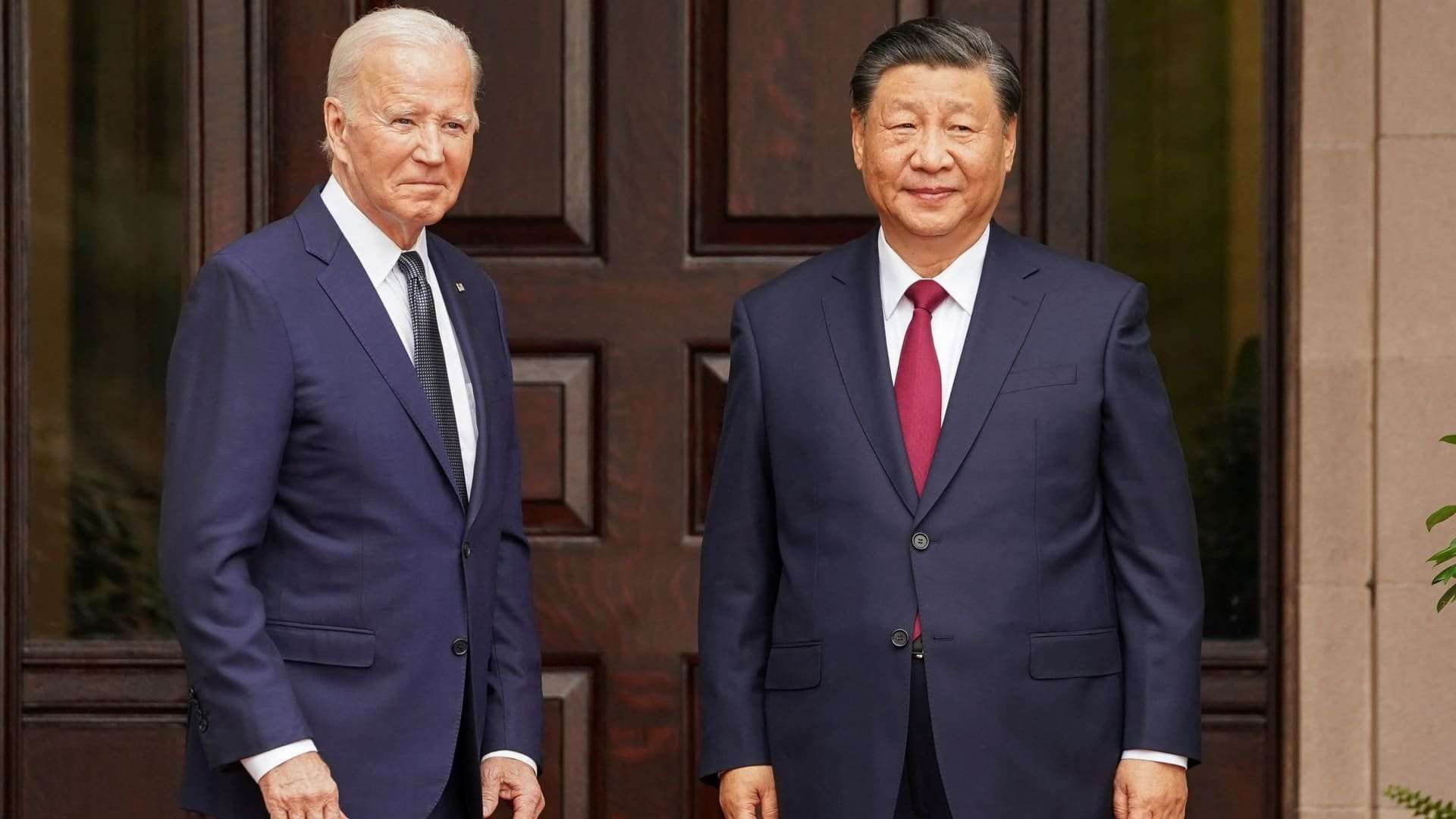U.S. President Joe Biden waves as he walks with Chinese President Xi Jinping at Filoli estate on the sidelines of the Asia-Pacific Economic Cooperation (APEC) summit, in Woodside, California, U.S., November 15, 2023. REUTERS/Kevin Lamarque Kevin Lamarque | Reuters
BEIJING — The U.S. and China have to choose between being adversaries or partners, Chinese President Xi Jinping told American business executives late Wednesday in San Francisco. His remarks contrast with the Biden administration's approach of pursuing strategic competition with Beijing — restricting exports of advanced U.S. tech to China, while looking for areas of cooperation. Xi was speaking at a dinner in San Francisco following his meeting with U.S. President Joe Biden a few hours earlier, on the sidelines of the Asia-Pacific Economic Cooperation conference. "I have always had one question on my mind: How to steer the giant ship of China-U.S. relations clear of hidden rocks and shoals, navigate it through storms and waves without getting disoriented, losing speed or even having a collision?" Xi said, according to an English-language readout of his Mandarin-language speech.
China is ready to be a partner and friend of the United States. Xi Jinping President of China
"In this respect, the number one question for us is: are we adversaries, or partners? This is the fundamental and overarching issue," he said. "The logic is quite simple. If one sees the other side as a primary competitor, the most consequential geopolitical challenge and a pacing threat, it will only lead to misinformed policy making, misguided actions, and unwanted results," Xi said. "China is ready to be a partner and friend of the United States," he said. "The fundamental principles that we follow in handling China-U.S. relations are mutual respect, peaceful coexistence and win-win cooperation."
Nearly 400 business leaders — including Apple CEO Tim Cook and Qualcomm CEO Cristiano Amon — government officials, U.S. citizens and academics attended the dinner, hosted by the U.S.-China Business Council and the National Committee on U.S.-China Relations. U.S Secretary of Commerce Gina Raimondo delivered remarks ahead of Xi's address. In a roughly 30-minute speech, Xi said China-led international initiatives such as the Belt and Road are open to U.S. participation, while Beijing is ready to join U.S.-proposed multilateral cooperation initiatives. "No matter how the global landscape evolves, the historical trend of peaceful coexistence between China and the United States will not change," Xi said.
Regarding earlier conversations with Biden, Xi said "we agreed to make the cooperation list longer and the pie of cooperation bigger." Xi said China is ready to invite 50,000 young Americans to study in the Asian country over the next five years. He also said China would send its giant pandas to the San Diego Zoo. He did not specify a time. Last week, the remaining three pandas in the U.S. on loan from Beijing returned to China due to an expiring contract. China has lent pandas to countries around the world as a diplomatic tool.
China never bets against the United States, and never interferes in its internal affairs. Xi Jinping President of China

SkinnyGetLucky on November 16th, 2023 at 13:51 UTC »
Two parties can’t be in a partnership when one side actively hurts the interest of the other
certainkindoffool on November 16th, 2023 at 12:48 UTC »
The old, "if your not with me, your against me" argument.
NextDoorEmoji on November 16th, 2023 at 10:08 UTC »
This article is a summary of the meeting which took place between Chinese President Xi Jinping and U.S. President Joe Biden, where Xi stressed his views on how the China-US relationship can be maintained: either through being adversaries or partners. This contrasts with the Biden administration’s approach of pursuing strategic competition with Beijing — restricting exports of advanced U.S. tech to China, while looking for areas of cooperation. It offers an interesting view into the stance that both sides hold.